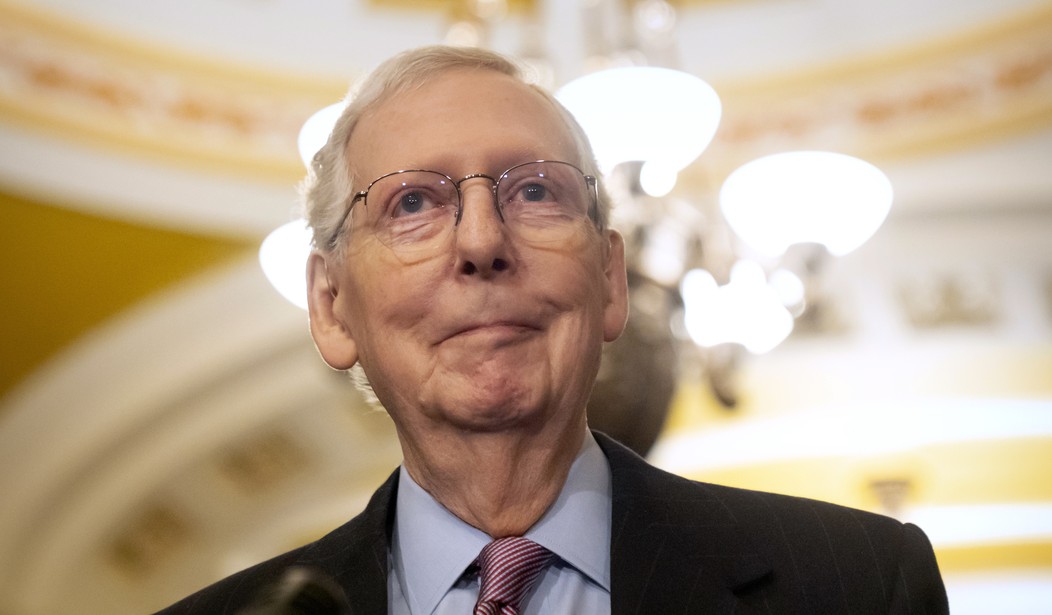As Mitch McConnell Walks Into the Sunset, What Will His Legacy Be and Who Will Fill His Shoes?
As my colleague Bob Hoge announced, former Sen. Leader Mitch McConnell (R-KY) is going gently into that good night. On the day of his 83rd birthday, Addison Mitchell McConnell took to the floor of the body where he has served as its longest-running leader to announce he will not seek reelection. A 40-year-long, four-decade, eight-term Senate career will officially sunset in January of 2027.
Mitch McConnell is undoubtedly the elder statesman of the Republican Party, serving in the Senate since the 1980s. He has led the Republican Senate caucus since 2007 and is the longest-serving congressional party leader in American history. Unlike our current president, McConnell (82-years-old as of writing) is willingly stepping down from his leadership post at the end of this Congress in January 2025. He will do so as the most important GOP legislator of the past half century at least. It is arguable that he has had the most internal influence from a congressional post in Republican history, going back to the earliest days of the party in the 1850s. (Robert Taft is up there, too, of course.) He was crucial in the Citizens United case, protecting political speech by citizens from an overzealous bipartisan effort to restrict it.
Love him or hate him, McConnell's greatest legacy will be how he transformed our nation's judiciary. First, in his refusal to bring the nomination of Merrick Garland before the Senate for confirmation hearings, essentially relegating Garland to his role as a much pilloried and now failed Attorney General. Second, in the rapid promotion and confirmation of constitutional judges. Thanks to McConnell's leadership, we have three originalist Supreme Court justices on the bench.
His biggest legacy, however, is in judicial confirmations. McConnell, always a master of the parliamentary rules of the Senate, fundamentally reshaped the American judiciary to fit a more originalist, conservative strain of legal thinking. He was never the first to alter the rules of the Senate, but played aggressively by the rules his opponents chose. His opposite number, Senator Harry Reid (D-NV), was the one who eliminated the filibuster for presidential appointments instead of working to find compromise picks; McConnell warned him of this and stated that Democrats would regret the choice. They certainly did a few years later, when Republicans were able to use these new rules to confirm three Justices to the Supreme Court in just four years – as well as blocking Obama’s appointment of Merrick Garland in a controversial, but entirely rational and legal maneuver. Those judicial appointments, both at the highest level and in the lower courts, have already begun to tell. In just the past few years, we have seen major victories for the conservative movement: overturning Roe v. Wade, minimizing deference to bureaucratic agencies, protecting freedom of speech and religion, limiting affirmative action, and much more. And this is just the beginning; the courts will lean in the originalist direction for decades to come.
McConnell's voting record of late has been particularly puzzling, with NO votes against the nominations of the Director on National Intelligence (DNI) Tulsi Gabbard, the Department of Health and Human Services (HHS) Secretary Robert F. Kennedy Jr., and Secretary of Defense Pete Hegseth. On the converse, perhaps McConnell chose to allow the so-called moderates in the Senate to gain plaudits for their YES votes for the nominees, while he could play the outlier with nothing to lose. Perhaps we'll find out the whys in the coming years, perhaps not. But for the most part, McConnell is leaving with his dignity intact and his head held high.
It was a humble farewell that signified a changing of the guard in the Senate, in Republican leadership and the nation.
WATCH:





Post a Comment